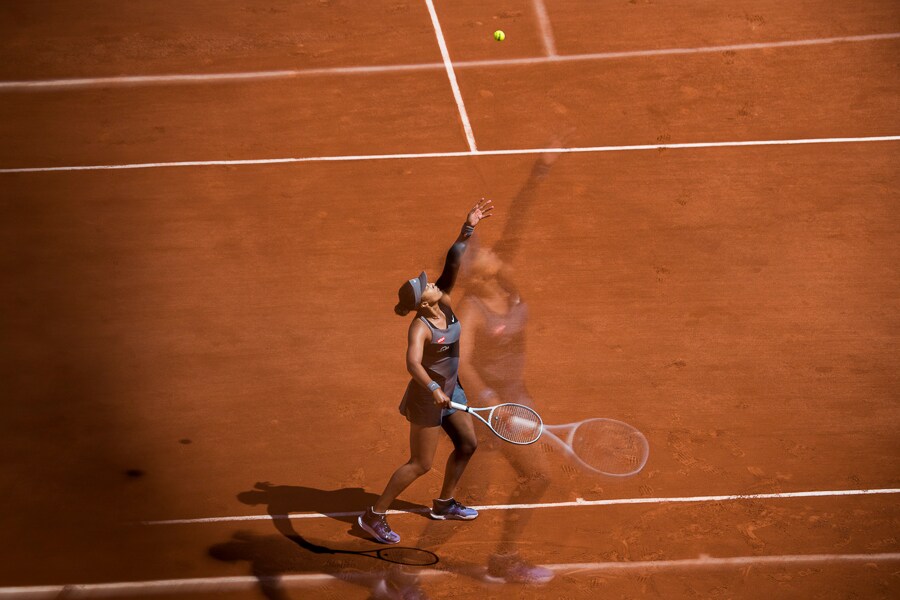
Naomi Osaka and the changing power dynamics in sports
Intentionally or not, Osaka stands at the leading edge of a broad, transformational movement in athlete empowerment, and what she does with this role will say a great deal about the power shift, for better or worse
 Naomi Osaka serves during her defeat of Patricia Maria Tig in the first round of the French Open in Paris on Sunday, May 30, 2021. Osaka, the second-ranked woman in tennis withdrew from the tournament on Monday, May 31, 2021, citing concerns for her mental health.
Naomi Osaka serves during her defeat of Patricia Maria Tig in the first round of the French Open in Paris on Sunday, May 30, 2021. Osaka, the second-ranked woman in tennis withdrew from the tournament on Monday, May 31, 2021, citing concerns for her mental health.
Photo Ilustration by Pete Kiehart for The New York Times
Thirteen sentences.
That’s all we got from Naomi Osaka as she bowed out of the French Open on Monday after causing a ruckus over her plan to skip post-match news conferences.
She did not speak those sentences. They were posted on her Instagram account. Nor did she provide anything like deep explanation. A global icon at age 23, Osaka left unclear when she would return to the women’s tour. She revealed for the first time that she had struggled with depression since beating Serena Williams in a controversy-cloaked final at the U.S. Open in 2018.
Thirteen sentences.
That was all she needed to rock the sports world and to provide another lesson in the increasing power of athletes to own their message and set their terms.
©2019 New York Times News Service




